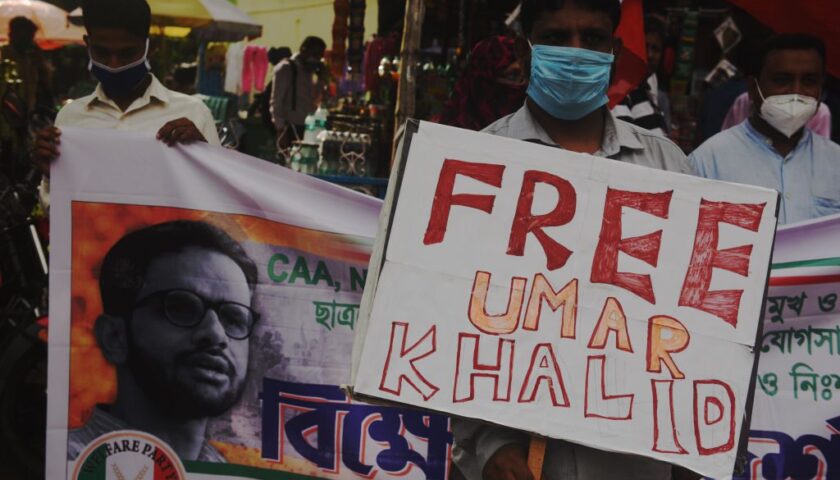Supreme Court Flags Key Concerns in Waqf Act: A Deep Dive into Legal and Social Implications
New Delhi, 16 April 2025: The Supreme Court of India has recently raised significant concerns regarding the newly enacted Waqf (Amendment) Act, 2025. This legislation, which governs the administration of Muslim charitable endowments known as waqfs, has sparked widespread debate and legal challenges. The Court’s scrutiny focuses on three pivotal aspects: the status of properties recognized as waqf by user, the inclusion of non-Muslim members in Waqf Boards and Councils, and the provisions related to government claims over waqf properties. This article delves into these issues, exploring their legal, social, and political ramifications.
Understanding Waqf and Its Importance
A waqf is a permanent dedication of property by a Muslim for religious, pious, or charitable purposes. These endowments play a crucial role in supporting mosques, educational institutions, and welfare activities within the Muslim community. The management of waqf properties is typically overseen by Waqf Boards established under the Waqf Act.
1. Status of ‘Waqf by User’ Properties
Legal Background
Traditionally, properties used continuously for religious or charitable purposes, even without formal documentation, have been recognized as waqf by user. This concept acknowledges the historical and communal practices of dedicating properties for Islamic causes.
Supreme Court’s Concern
The new amendments challenge this recognition by requiring formal documentation for a property to be considered waqf. The Supreme Court has expressed apprehension that denotifying such properties could have grave ramifications, potentially disrupting longstanding religious practices and community structures.
Implications
-
Legal Uncertainty: Properties functioning as waqf for generations may face legal challenges due to lack of formal records.
-
Community Impact: Denotification could affect the functioning of mosques, madrasas, and other institutions relying on these properties.
-
Historical Significance: Many waqf properties hold historical and cultural importance, and their status change could lead to heritage loss.
2. Inclusion of Non-Muslim Members in Waqf Boards and Councils
Legislative Changes
The amendment allows for the inclusion of non-Muslim members in Central and State Waqf Boards and the Central Waqf Council. Proponents argue this promotes inclusivity and transparency.
Supreme Court’s Observation
The Court questioned the rationale behind this inclusion, highlighting that similar religious boards for other communities do not have members from different faiths. It emphasized that while ex-officio members could be non-Muslims, the majority should be Muslims to preserve the religious character of the waqf institutions.
Implications
-
Religious Autonomy: The inclusion may be perceived as an infringement on the Muslim community’s right to manage its religious affairs.
-
Precedent Concerns: This move could set a precedent affecting the governance of other religious institutions.
-
Community Trust: Alterations in board compositions might lead to mistrust among the community regarding the management of waqf properties.
3. Government Claims Over Waqf Properties
Amendment Provisions
The new law stipulates that if a property is claimed as government land, it cannot be considered waqf. Additionally, it empowers district collectors to investigate and decide on such disputes.
Supreme Court’s Stand
The Court raised concerns about the fairness of this provision, questioning the logic of disqualifying a property from being waqf merely because of a government claim. It suggested that such matters require a more balanced approach to prevent potential misuse.
Implications
-
Risk of Encroachment: Waqf properties might be vulnerable to being claimed as government land, leading to potential loss of community assets.
-
Legal Challenges: The provision could result in numerous legal disputes, burdening the judiciary and affecting the stability of waqf institutions.
-
Community Displacement: Loss of waqf properties may disrupt services provided to the Muslim community, including education and healthcare.
Broader Legal and Social Context
Constitutional Rights
The challenges to the Waqf (Amendment) Act, 2025, are grounded in concerns over violations of Articles 25 and 26 of the Indian Constitution, which guarantee the freedom to manage religious affairs and maintain religious institutions.
Community Response
Various Muslim organizations, scholars, and political parties have filed petitions against the amendments, viewing them as an unconstitutional assault on religious autonomy. They argue that the changes impose arbitrary restrictions and enhance state control over Islamic religious endowments.
Comparative Analysis
Critics point out that other religious communities in India manage their institutions without similar government intervention. For instance, Hindu temples and Sikh gurdwaras have boards composed exclusively of members from their respective faiths, highlighting a perceived inconsistency in the application of religious governance.
Bottom-Line
The Supreme Court’s scrutiny of the Waqf (Amendment) Act, 2025, underscores the delicate balance between state oversight and religious autonomy. The highlighted concerns reflect broader issues of constitutional rights, community trust, and the preservation of religious heritage. As the legal proceedings continue, it is imperative for all stakeholders to engage in constructive dialogue to ensure that the management of waqf properties aligns with both legal standards and the sentiments of the Muslim community.




